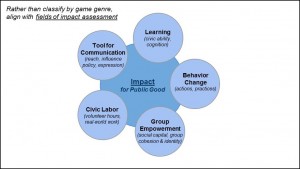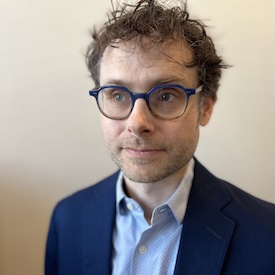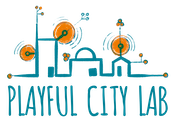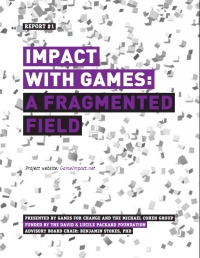 I’ve co-authored a new report on Impact with Games: A Fragmented Field, along with Games for Change and the Michael Cohen Group. From our abstract:
I’ve co-authored a new report on Impact with Games: A Fragmented Field, along with Games for Change and the Michael Cohen Group. From our abstract:
This is the first report in a series on game “impact types.” We begin with the problem. Our field needs a better way to talk about impact — a deeper conversation that is more fundamentally inclusive and multidisciplinary, yet still evidence-based. This report is a first step, revealing the basic fragmentation and documenting its harm.
Inside we reveal five types of fragmentation, each pointing to specific opportunities to improve the coherence of our field. Specifically:
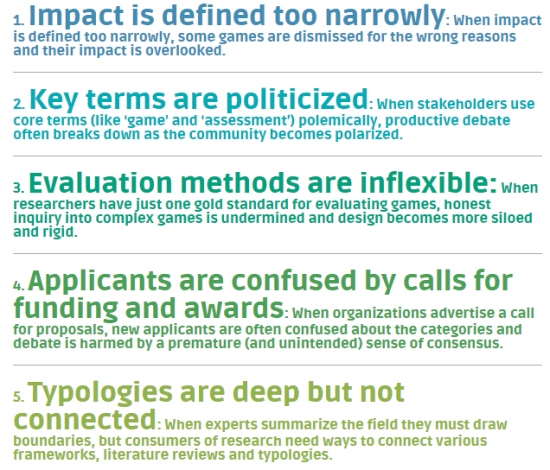
Read and download the full report on the project website: http://GameImpact.net
Related:
- On the DML Research Hub, I blogged: “Game Impact: New Report on Field Cohesion“
- Games for Change invited the community to “Help Us Build the Social Impact Games Field” on their website
- Coverage from the Games and Learning Hub on “New Effort Aims to Redefine, Better Measure the Impact of Games”
- Pictures from the soft-launch of the report are here.
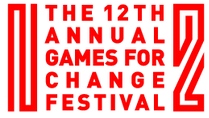 I’m thrilled to be hosting a
I’m thrilled to be hosting a 

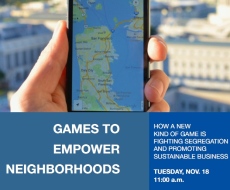
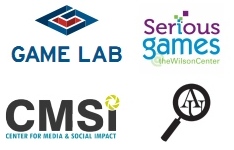 This research was only possibly thanks to the generosity and prior work of Madeleine Taylor of
This research was only possibly thanks to the generosity and prior work of Madeleine Taylor of 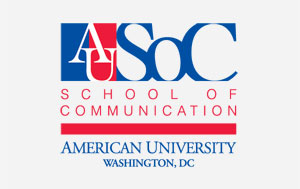 Join my live-
Join my live-

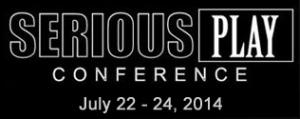 With Tracy Fullerton, I will be doing a “Critical Conversation” session on Wednesday July 23, 2014 at 5pm. Our topic is the Reality Ends Here game, and the session considers the game’s learning goals and evaluation strategy (hint: network analysis, drawing on my dissertation research). The conference runs for several days, this year held at USC. In the conference organizers’ words: “The Serious Play Conference, now in our 4th year, is a leadership conference for professionals who embrace the idea that games can revolutionize learning.” See also the conference
With Tracy Fullerton, I will be doing a “Critical Conversation” session on Wednesday July 23, 2014 at 5pm. Our topic is the Reality Ends Here game, and the session considers the game’s learning goals and evaluation strategy (hint: network analysis, drawing on my dissertation research). The conference runs for several days, this year held at USC. In the conference organizers’ words: “The Serious Play Conference, now in our 4th year, is a leadership conference for professionals who embrace the idea that games can revolutionize learning.” See also the conference 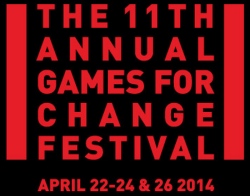 At
At 